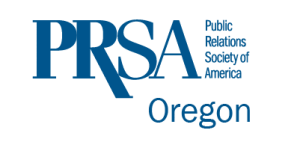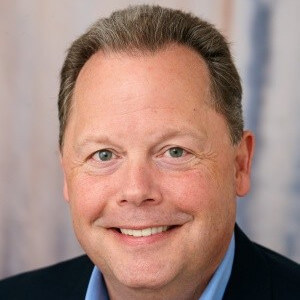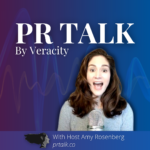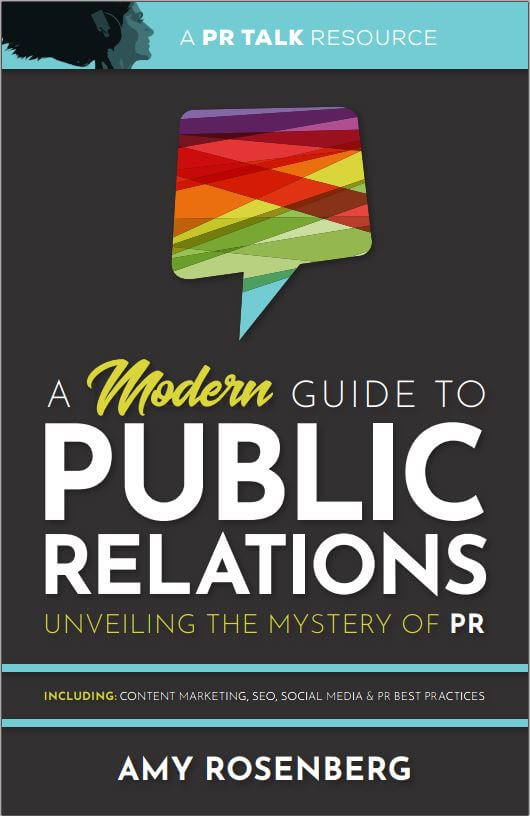
Using Thought Leadership as a Recruiting and Retention Tool
There’s been a lot of talk in the media lately about the so-called Great Resignation, where Americans, spurred by the pandemic and a host of other sociological changes, have left their current jobs en masse. Data shows that an average of 3.95 million workers quit their jobs each month in 2021, which is the highest average on record.
These developments have caused some soul-searching with business owners and executives, as they struggle to hire and keep employees. Some are offering more perks, increased pay, and permanent work from home in an attempt to satisfy a new breed of restless workers. But one factor many of these discussions overlook is the content companies create. When produced authentically, thought leadership can be an effective and invaluable recruitment and retention tool.
Finding Your Content’s Purpose
Public relations is certainly feeling the shockwaves of the Great Resignation. I’ve written before about how poorly some firms treat their teams, overworking young and eager employees until they’re so burnt out that they change careers or move to work independently. When I started Veracity, I wanted to do things differently.
I often struggle to find enough team members to get the work done as my business grows. But I never struggle creating content. Whether my podcast, blogging, or my book about how to do PR, I love exploring the mechanics and strategy of PR. Some traditional thought leaders might say I’m taking the wrong approach. After all, the CEOs and business owners who will hire my firm won’t care about how to draft a press release correctly. They’ll just trust us to do it. So the content I create isn’t really a sales tool, and my audience isn’t really potential customers. In reality, I’m making all this content for other PR people.
That doesn’t mean these are wasted efforts. Far from it. When I can speak transparently and honestly through my content, I’m speaking directly to my key audience: my staff, my future staff and my future business partners or referral sources.
A Potential Employee’s Experience
The content I produce also gives prospective employees and clients a pretty good glimpse of who I am and what I value. This connection was made even clearer for me as we went through the hiring process of our latest employee, Cailyn Tegel. Before she applied for the position, Cailyn consumed Veracity’s content and then used that information to make her application materials more relevant for us. Here’s Cailyn offering her perspective of the hiring process:
“After graduating from college, I started my job search immediately. During this search, I came across so many different companies with all their ‘why you should work here statements. Some companies were well rounded, and others weren’t. One thing I made sure to do when applying for jobs was to learn as much about the company/employers before I even tried to apply. My thought was if I could find five reasons why I wanted to work specifically for that company, then they deserved my time for creating a customized resume and cover letter.
I dropped a lot of companies from my qualifying work list because of their lack of information. Yes, I knew what they did and who their clients were, but I didn’t know who ‘they’ were and if I would even fit with their team. I know this may sound crazy coming from someone who just graduated, and you would be right to think that, but applying for jobs is a job in itself, and I wasn’t going to just settle for some random job fresh out of college. I wanted something that made sense for me, something I would enjoy every day with people I connect with.
When I came across Veracity, the first thing that got my attention was that they didn’t just make a random job post on LinkedIn; they created a blog post with the job details. They had me hooked! Not only did I find out the qualifications for the position, but I also learned a little history on Veracity and the owners. After visiting the website, I immediately noticed a difference; there was so much information, blogs, podcasts, social accounts, etc. I was overwhelmed with knowledge, which is good because I knew who I was tailoring my resume to. When I sat down for my interviews, I knew what they would sound like and what they were looking for. I was fully prepared to tell them exactly what I loved about their company (honestly), and I knew enough about the Veracity team because of their thought leadership.
I think any company can benefit from using thought leadership from a hiring standpoint. Recruiting employees with thought leadership will also help with retention since you will get candidates that already know what to expect at your company. I wanted this job because I could tell I fit, and honestly, I can say working here has proved that point even more.”
At this point, content creation as a recruitment tool begins to fall into place. When I produce the type of content I love, there is an ultimate purpose behind it, which is more significant than sales: finding and keeping employees.
The Work Benefits When Everything’s Aligned
As my team grows, I come to find that I really enjoy and depend on them, not only to do the work but to make the work better. I realize that having a larger team ensures that things don’t fall through the cracks. But more than that, I need to bounce my ideas off my team and also run my gut-checks through them to see if I am right or wrong about certain situations.
I also find that I don’t need to bring all the ideas to my newer employees. Instead, I can come to meetings with a problem or lack of ideas, and then the team solves the problem or brings the ideas for me. I’ve learned that having a team means so much more than growth. It brings confidence and capability to the work.
A side benefit to all the content I create is that I can use it all for training purposes. If anyone has a question, I can point back to a video, book chapter, or podcast I’ve done. This way, the content lives forever and is repurposed time and time again. Also, it saves me a lot of time and ensures that my directions are clearer when all the steps are listed in written form.
I’m Probably Being Selfish
In many ways, my content has become an entirely selfish affair. It’s what I like to talk about; it speaks directly to the people I not only want on my team but that I’d also rather hang out with; it helps me with my clients and preserves my sanity in what would otherwise be a lonely, uncertain job, all while ultimately saving me time because I do not have to repeat myself.
As we all reckon with what the Great Resignation means for the workforce, I think business owners and executives can spend less time agonizing over the why and think more about the what.
- What are we putting out into the world?
- What is the purpose behind these efforts?
- What do we want to express?
- What do we want people to understand?
Over the last couple of years, I’ve learned that I don’t work for my clients. Instead, I work for the Veracity team. By providing them with education and growth, they’ll naturally take care of my clients. This entire process begins with my content.
Featured image courtesy of Christina @ wocintechchat.com via Unsplash

![Job Seeking During COVID-19 with Mac Prichard [Podcast]](https://www.veracityagency.com/wp-content/uploads/Mac-PR-Talk-with-Mac-Prichard.jpg)


![Finding a Job During Coronavirus with Dan Lee [Podcast]](https://www.veracityagency.com/wp-content/uploads/Episode-83-Dan-Lee-Coronavirus.jpg)

![Dan Lee: Should Media Members Switch to PR? [Podcast]](https://www.veracityagency.com/wp-content/uploads/Dan-Lee-PR-Talk-Ep-65.jpg)
![Agency vs. In-House with Dan Lee [Podcast]](https://www.veracityagency.com/wp-content/uploads/PR-Talk-Unicorn.jpg)
![PR Roles and Mindset [Podcast]](https://www.veracityagency.com/wp-content/uploads/PR-Roles-and-Mindset-800x600-1.png)



